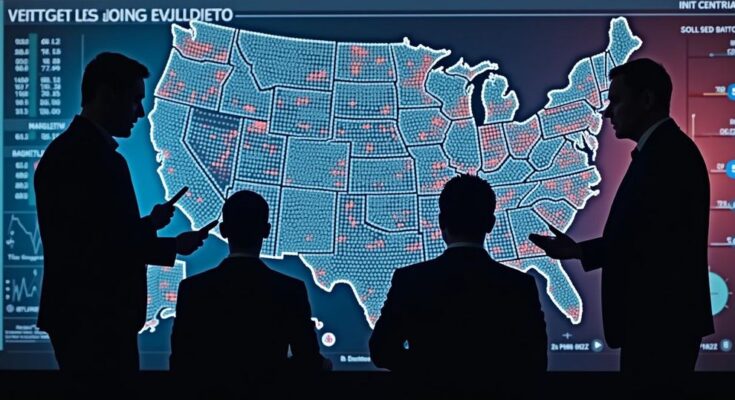An independent group of experts has validated opposition-provided tally sheets that indicate Nicolás Maduro lost Venezuela’s recent presidential election. The experts affirmed the functionality of the electronic voting system, prompting the Organization of American States to address the electoral dispute. This situation emphasizes the tensions over election legitimacy, with significant implications for Venezuela’s political landscape.
A group of independent election experts has confirmed the validity of tally sheets presented by the opposition, supporting their assertion that Nicolás Maduro lost the recent presidential election in Venezuela. In a meeting on Wednesday with the Organization of American States (OAS), representatives from the U.S.-based Carter Center stated that the electronic voting system functioned correctly and indicated that the ruling party and stakeholders are aware of the factual results. This information was shared during a session addressing electoral disputes arising from the July presidential election. The Carter Center was one of two independent groups invited by the Venezuelan government to observe the election held on July 28. While electoral authorities claimed without substantiation that Maduro had won, the crux of the dispute lies in thousands of tally sheets, known as actas, which are considered definitive proof of the election results in Venezuela. Each of the 30,000 electronic voting machines produced multiple copies of these sheets, which could be obtained by representatives of the participating parties once the data was forwarded to the National Electoral Council. Shortly after the election, authorities declared Maduro the victor, yet they refrained from publishing detailed machine-by-machine results, citing a cyberattack that compromised their website. In contrast, the main opposition coalition managed to acquire tally sheets from over 80% of the voting machines and subsequently published these findings. The government responded by alleging that these records were fabricated and initiated an investigation against opposition figures, including their candidate Edmundo González. Jennie Lincoln, who led the Carter Center’s mission, provided crucial insights, stating, “The voting system is electronic, but it offers a paper trail – proof of what the electronic machine reports…not just from the opposition, but also from the government party, the PSUV, that also has the same information.” Although Lincoln refrained from declaring González as the winner, she emphasized that such pronouncements are the prerogative of electoral authorities. Lincoln also shared that the Carter Center had received tally sheets via international mail, although she did not disclose the sender and the organization did not readily provide additional information regarding these documents.Delegates from numerous countries, including Argentina, Costa Rica, Panama, the United States, Guatemala, Guyana, Peru, the Dominican Republic, and Ecuador, prompted the OAS to request that Venezuela’s electoral authorities publicize more detailed voting data as part of their ongoing inquiries into the electoral process.
In recent years, Venezuelan elections have been marred by widespread allegations of fraud and manipulation, leading to significant disputes over election outcomes. The use of an electronic voting system that provides a paper trail has been a focal point for both the government and opposition groups. Tally sheets, or actas, serve as critical evidence of election results, and their legitimacy is paramount for understanding the electoral process in Venezuela. The situation remains contentious, with international bodies like the Organization of American States and various countries closely monitoring the developments surrounding the election results and calls for transparency.
The validation of the opposition’s tally sheets by independent experts underscores the ongoing tensions surrounding the Venezuelan presidential election results. The confirmation casts doubt on the ruling party’s claims of victory, prompting international concerns and calls for transparent reporting from electoral authorities. As the situation unfolds, the implications for Venezuelan governance and democracy remain critical, necessitating careful scrutiny and engagement from the international community.
Original Source: www.cbsnews.com




